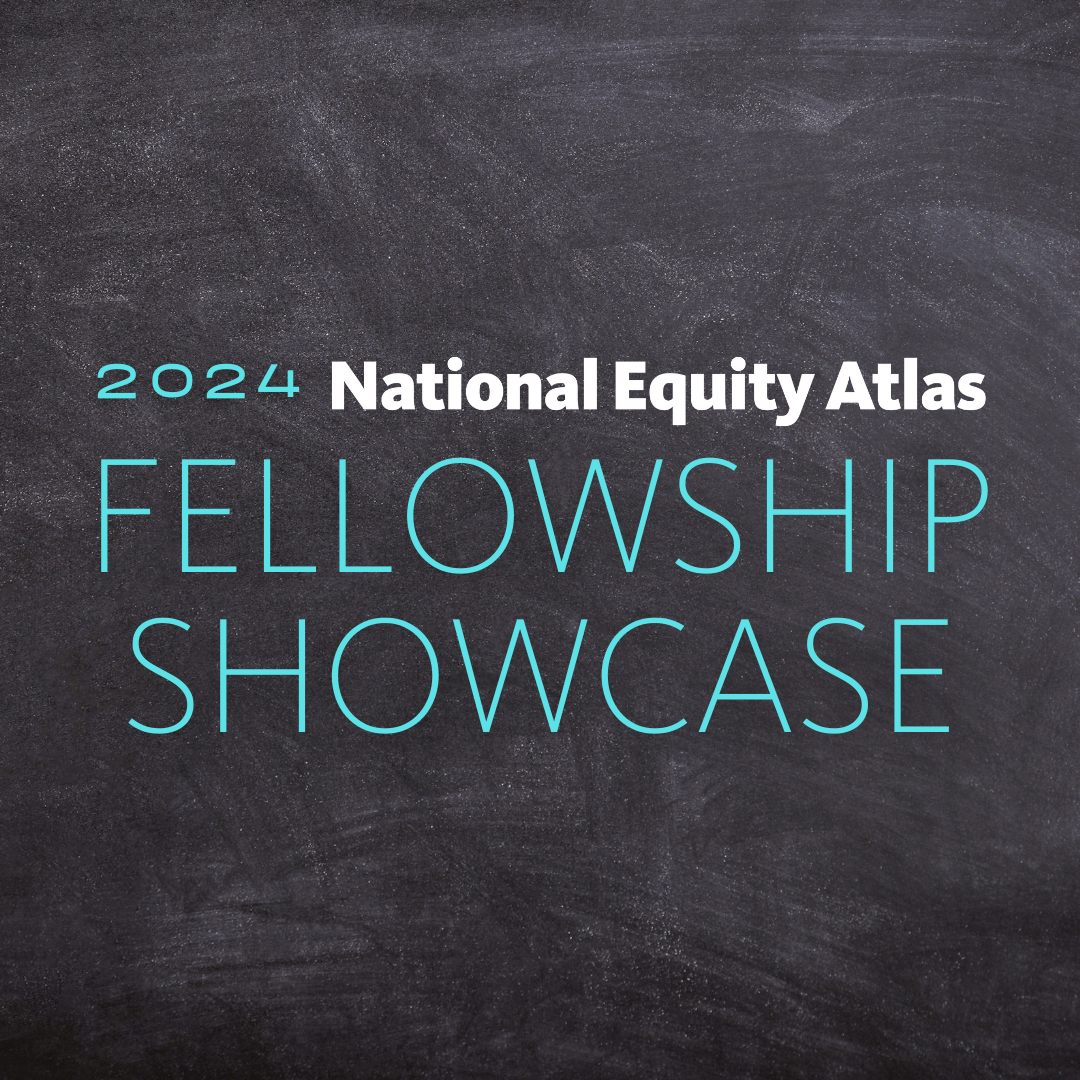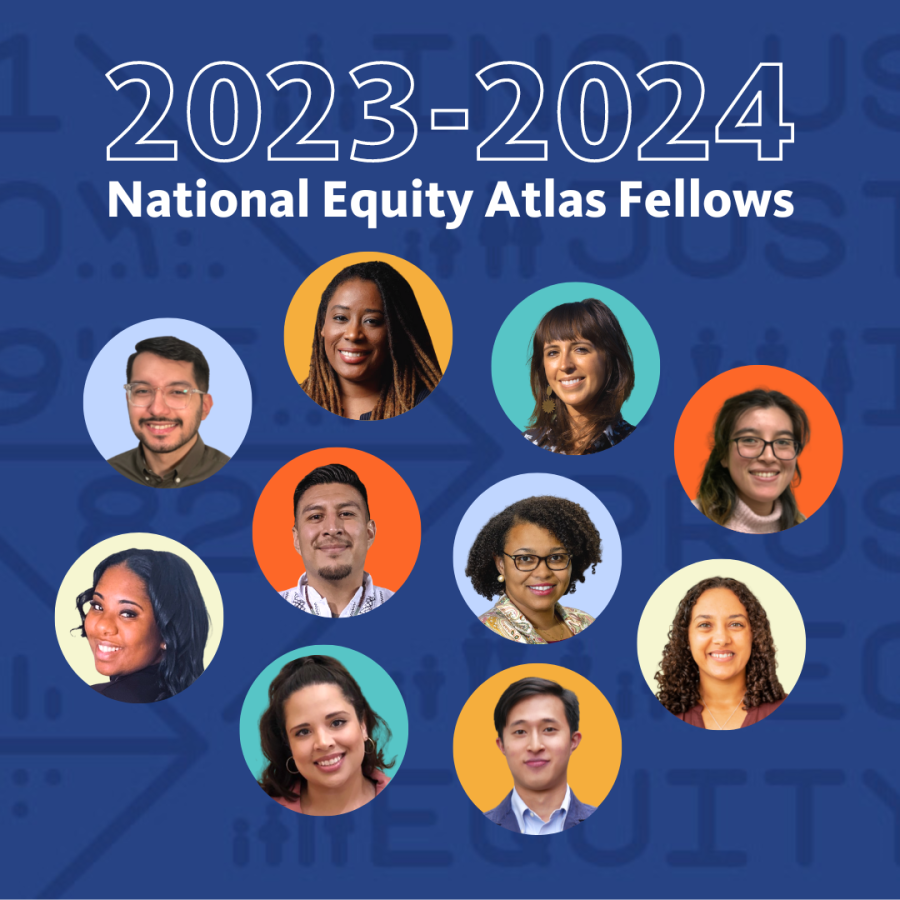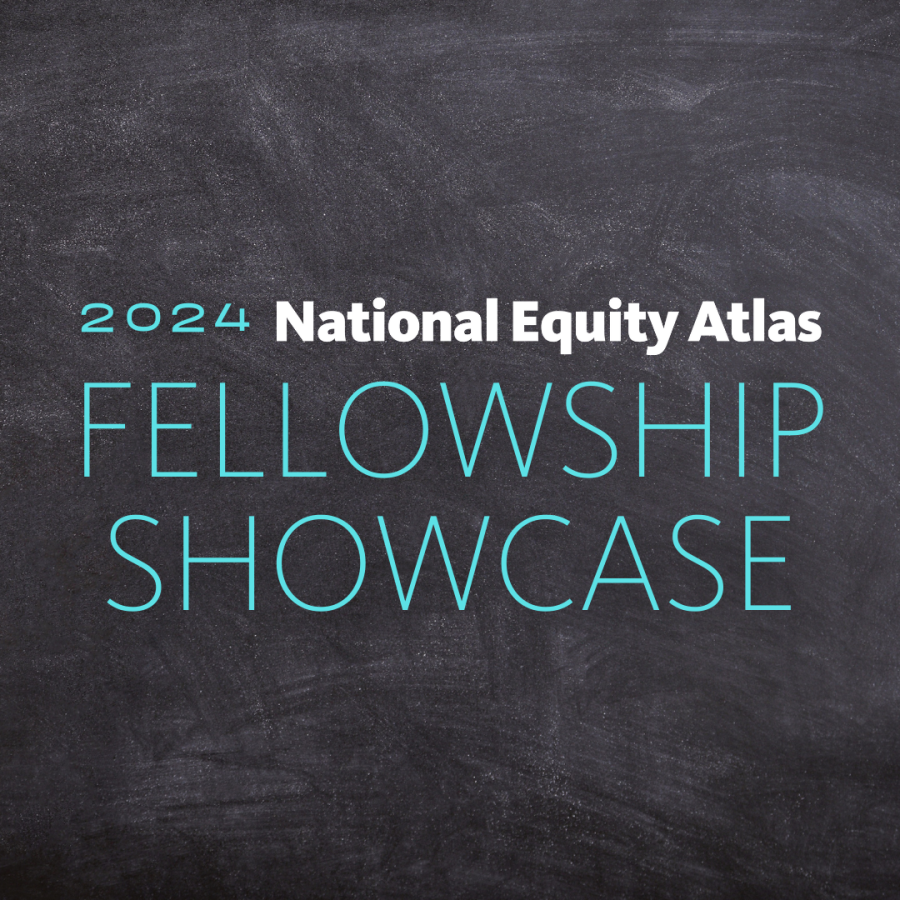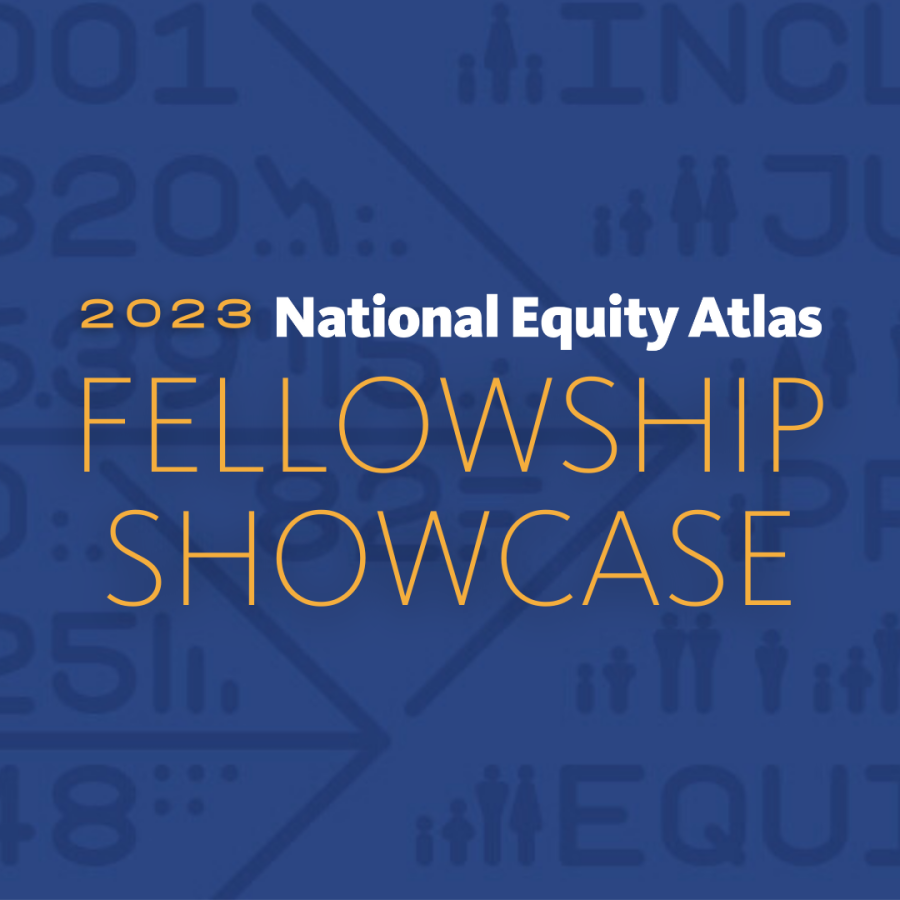Looking Back, Moving Forward: The National Equity Atlas Fellowship
Reflecting on Two Years of Insights and Reaffirming Our Commitment to Research Justice
Central to our values as the National Equity Atlas is a research justice approach committed to democratizing data. Despite the growing availability of public data sources, they often remain inaccessible and difficult to use for many. Raw data is frequently presented in hard-to-read formats that lack transparency and the important information and context needed to interpret and use it. To address these challenges, we launched the Racial Equity Data Lab as a new resource on the Atlas in 2021. This dedicated space provides learning resources, self-guided training modules, and tools to support advocates in deepening their data literacy and skills in creating equity-focused data visualizations.
To better understand the needs of our users and the resources required to expand their data literacy skills, we launched the National Equity Atlas Fellowship in 2022. This one-year program provided intensive, hands-on data training and support to grassroots leaders of color in community-based organizations. Each of the organizations represented by the fellows works to increase racial and economic equity by advancing policy solutions and systems-level transformation through local, state, and national campaigns across a range of issue areas, including transportation, climate, economic development, housing, and workers' rights.
Throughout the year-long fellowship, we worked closely with 22 exceptional leaders from the equity movement. Fellows participated in monthly learning sessions focused on research justice and key data skills, such as accessing and cleaning datasets, framing data with an equity narrative, and creating impactful data visualizations. They also received one-on-one coaching, technical assistance, and peer support for their data projects. By the end of the fellowship, each fellow produced data visualizations and products to bolster their campaigns. Learn more about each fellow’s work and project by visiting the 2024 Fellowship Showcase.
The 2024 National Equity Atlas Fellowship Showcase
The 2024 National Equity Atlas Fellowship Showcase celebrates the visionary data projects of the second cohort of fellows. Through recorded presentations, each fellow provides a comprehensive look at how they're leveraging data to drive policy and advocacy initiatives. Their projects highlight innovative strategies and actionable solutions to address pressing issues, including housing affordability, transit deserts, the digital divide, wage theft, economic instability, climate change, and environmental hazards. By engaging with their work, you'll gain valuable insights into the transformative power of data in advancing racial and economic equity within communities.

We are now leveraging lessons from two years of our fellowship program to develop new resources and tools for the Racial Equity Data Lab, which will benefit all Atlas users and the broader network of equity advocates across the country. Below, we share some initial reflections and lessons from the fellowship that will inform and guide our future work on the Lab.
Community-based leaders need self-paced learning tools that can adapt to the responsive and unpredictable nature of advocacy work.
Grassroots organizations, particularly power-building advocacy organizations working in historically disinvested communities most impacted by crises, are often the first to respond to community needs and opportunities. Throughout the program, fellows managed emergency flooding disasters, organized community rallies, and coordinated community responses to unexpected policy decisions, such as the reopening of a long-closed juvenile justice facility. A key feature of the fellowship was the format of the tools and resources provided, ensuring fellows could access them at any time. This included recorded webinar sessions as well as accompanying templates and guides that supported self-paced learning and exploration.
We are creating new tools designed for self-paced navigation, accompanied by guides and supplemental resources that cater to different learning styles and the dynamic environment of the advocacy field. Grassroots leaders and advocates often face challenges in prioritizing self-care due to limited time and resources. As an intermediary organization, we strive to acknowledge the emotional labor involved in their work, celebrate their personal growth, and foster peer support across our network.
Advocates benefit from resources that build data literacy and provide skills applicable across evolving policy landscapes rather than one-time-use tools.
Our fellowship curriculum was intentionally designed to provide fellows with six months of foundational learning. However, even in the ninth month of the fellowship, we were assisting fellows in transitioning their project topics due to the ever-changing policy landscape, which included natural disasters, emerging policy opportunities and challenges, new policy initiatives, and shifting philanthropic funding. Our program focused on deepening their data literacy by equipping them with fundamental data visualization and research skills applicable beyond specific campaigns or projects. The goal of the fellowship was to empower fellows in applying data literacy and visualization skills to their equity campaigns and aligned projects, preparing them for future advocacy efforts.
Future resources on the Lab will be organized into learning arcs, such as foundational data visualization skills, applying a research justice lens, and stakeholder audience mapping. This structure will help users understand the skills they can develop within each pathway, helping them choose modules that align with their learning goals and allowing them to navigate the Lab independently. We aim to enable users to deepen their data literacy in ways that can support an array of data projects and roles.
To effectively design their data tools, grassroots advocates need resources that help them understand stakeholder roles and motivations.
Grassroots advocacy leaders often work in coalitions across multiple levels, collaborating with community members, organizers from other advocacy groups across various issues, and policymakers and their staff. This diverse landscape means different stakeholders and decision-makers may need the same data packaged in different formats with different framing language.
We provided training, resources, and tools that fellows used to identify various stakeholders and strategically prioritize their distinct needs when designing their data products. This learning has been integrated into our newly updated gallery, which now includes explanations of key audiences for various Atlas data projects and the intended use of each featured tool. This audience-focused planning approach helps streamline the data product development process and fosters alignment across stakeholders by grounding them in shared data.
The Lab resources will include materials to help users identify their primary audience and understand the information they need to drive action. Users will be guided in applying stakeholder mapping and analysis techniques to strategically align data and framing for maximum impact.
We are excited to apply these insights to the development of new tools and resources for the Racial Equity Data Lab. We are grateful to both cohorts of fellows for sharing their reflections and allowing us to learn alongside them. We also look forward to building upon their experiences as we advance our justice-driven strategy to data democratization and strengthen our commitment to collaborative partnerships. If you want to learn more or discuss these insights, please reach out to Selena Tan at selena@policylink.org. Stay tuned for the next chapter of the Lab!


